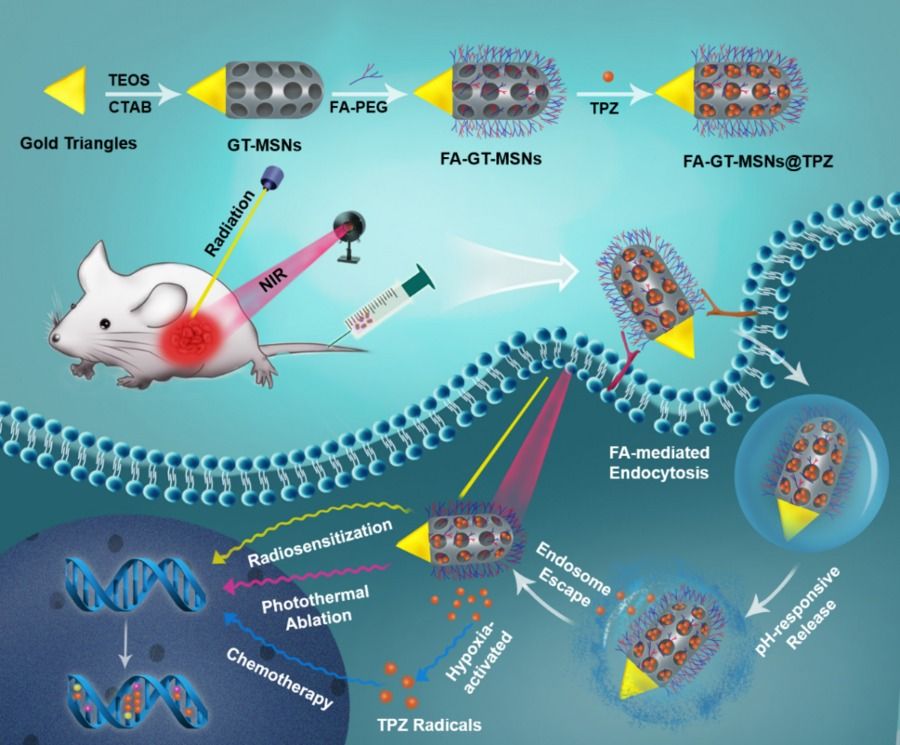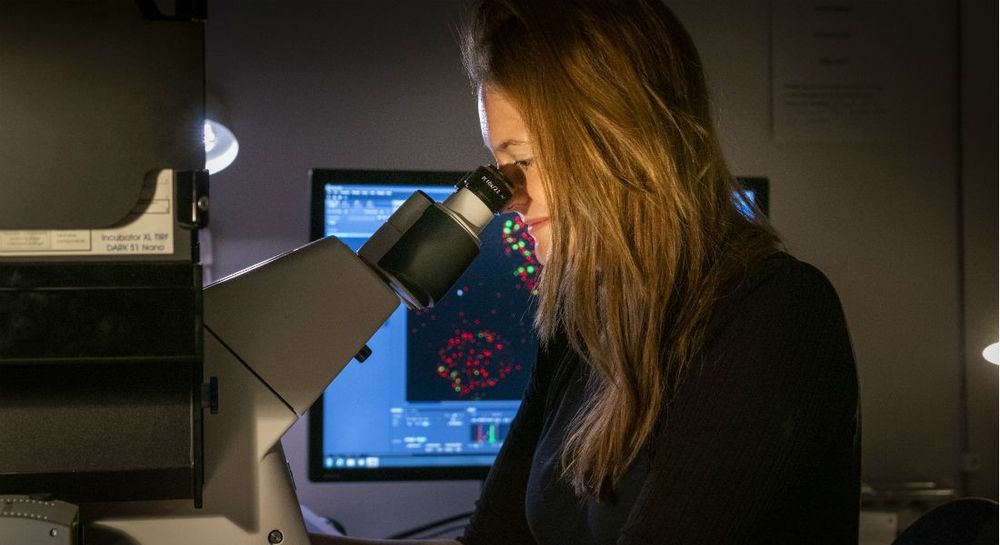- Article
- Open Access
- Published: 31 October 2019



Photo shows how the new nanomaterial can be used to treat liver cancer in mice. Experimental results prove that the material is efficient and safe in fighting tumors.(Photo provided to Xinhua)
Chinese scientists have invented a nanomaterial which has been proved effective in fighting liver tumors, providing new hope for cancer patients.
NANJING, Oct. 31 (Xinhua) — Chinese scientists have developed a nanometer material that can be used for liver cancer treatment, according to the Suzhou Institute of Biomedical Engineering and Technology under the Chinese Academy of Sciences Wednesday.

Researchers from Russian corporation Neurobotics and the Moscow Institute of Physics and Technology have found a way to visualize a person’s brain activity as actual images mimicking what they observe in real time. This will enable new post-stroke rehabilitation devices controlled by brain signals. The team published its research as a preprint on bioRxiv and posted a video online showing their “mind-reading” system at work.
To develop devices controlled by the brain and methods for cognitive disorder treatment and post-stroke rehabilitation, neurobiologists need to understand how the brain encodes information. A key aspect of this is studying the brain activity of people perceiving visual information, for example, while watching a video.
The existing solutions for extracting observed images from brain signals either use functional MRI or analyze the signals picked up via implants directly from neurons. Both methods have fairly limited applications in clinical practice and everyday life.

Humans’ guts are a dangerous place.
Bacteria living in people’s intestines pump out toxins to deter microbial intruders. But each person’s gut comes with its own set of toxins—an individualized “passcode” microbes must solve to survive, scientists report October 30, 2019, in the journal Nature.
The findings suggest that there’s not a one-size-fits-all approach to probiotics or live biotherapeutics, the microbial supplements that promote the growth of healthy bacteria, says study coauthor Joseph Mougous, a Howard Hughes Medical Institute (HHMI) Investigator at the University of Washington (UW). His team’s work is an early step toward figuring out how scientists might instead tailor beneficial microbes to different people.

At the University of Copenhagen, researchers have discovered how some types of proteins stabilize damaged DNA and thereby preserve DNA function and integrity. This new finding also explains why people with inborn or acquired defects in certain proteins cannot keep their DNA stable and develop diseases such as cancer.
Every day, the body’s cells divide millions of times, and the maintenance of their identity requires that a mother cell passes complete genetic information to daughter cells without mistakes.
This is not a small task because our DNA is constantly under attack, both from the environment but also from the cell’s own metabolic activities. As a result, DNA strands can be broken at least once during each cell division cycle and this frequency can increase by certain lifestyles, such as smoking, or in individuals who are born with defects in DNA repair.

Higher serum levels of elaidic acid, an objective biomarker for industrial trans fat, are associated with an increased risk for developing all-cause dementia and Alzheimer disease, according to a study published online Oct. 23 in Neurology.
Takanori Honda, Ph.D., from Kyushu University in Fukuoka, Japan, and colleagues examined the prospective correlation between serum elaidic acid (trans 18:1 n-9) levels and incident dementia in 1,628 Japanese community residents aged 60 years and older without dementia. Participants underwent screening examination in 2002 to 2003 and were followed prospectively to November 2012.
The researchers found that 377 participants developed some type of dementia during follow-up. After adjustment for traditional risk factors, significant correlations were seen for higher serum elaidic acid levels with greater risk for developing all-cause dementia and Alzheimer disease. After adjustment for dietary factors, including total energy intake and intakes of saturated and polyunsaturated fatty acids, these associations remained significant. There was no significant correlation noted for serum elaidic acid levels and vascular dementia.

A chance finding ten years ago led to the creation by researchers of the Spanish National Cancer Research Centre (CNIO) of the first mice born with much longer telomeres than normal in their species. Given the relationship between telomeres and ageing – telomeres shorten throughout life, so older organisms have shorter telomeres -, scientists launched a study generating mice in which 100% of their cells had hyper-long telomeres. The findings are published in Nature Communications and show only positive consequences: the animals with hyper-long live longer in better health, free from cancer and obesity. The most relevant thing for the authors is the fact that longevity has been significantly increased for the first time ever without any genetic modification.
“This finding supports the idea that, when it comes to determining longevity, genes are not the only thing to consider”, indicates Maria Blasco, Head of the CNIO Telomeres and Telomerase Group and intellectual author of the paper. “There is margin for extending life without altering the genes”.
Telomeres form the end of chromosomes, in the nucleus of each cell in the body. Their function is to protect the integrity of the genetic information in DNA. Whenever the cells divide the telomeres, they are shortened a little, so one of the main characteristics of ageing is the accumulation of short telomeres in cells. “Telomere shortening is considered to be one of the primary causes of ageing, given that short telomeres cause ageing of the organism and reduce longevity”, as the paper published in Nature Communications explains.

A few years ago, popular YouTuber Life Noggin published a video titled “WHY DO WE DIE?” In this video, he briefly goes into the science behind the gradual cellular degradation of the biological substrate, which causes all known side-effects associated with aging. At the end of the video, however, he revealed that he’d much rather “live forever” than die.
As a result, his subscribers, which is nearly at 2.9 million, took to the comments section to overwhelmingly declare similar hopes. Not everyone was convinced, however.
As we continue searching for the cure to aging, we’ll need to better inform the public that we’ve no intention of dictating how long they’re to live and when they’re to die.